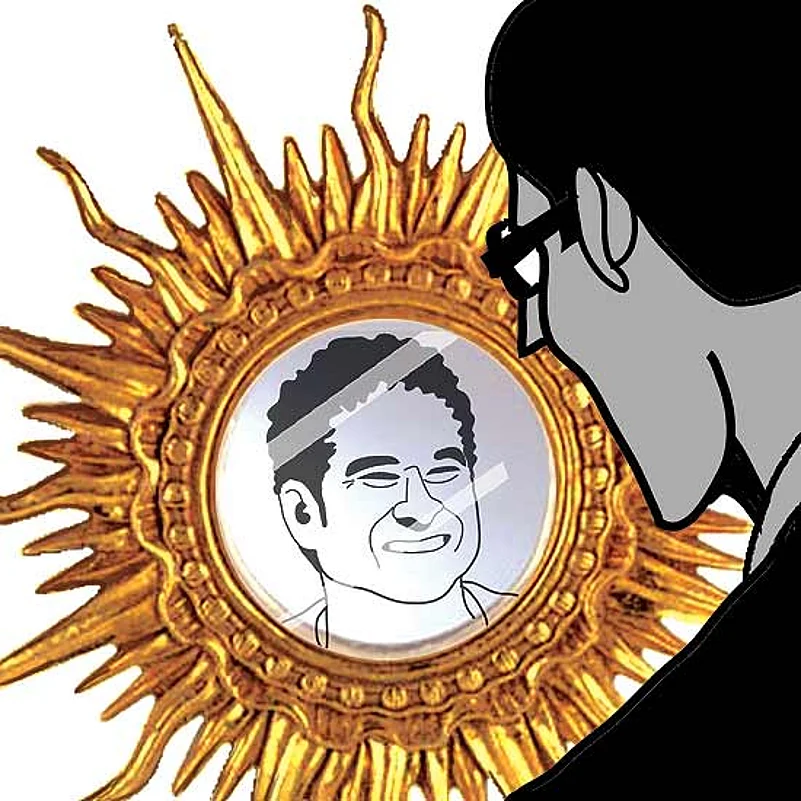Sachin Tendulkar’s greatest contribution to the self-image of the diasporic Indian is to enable the construction of a new narrative of self-description. Our constructed individual selves have invariably drawn upon community and nation: its achievements, flaws and shortcomings have become ours. Freud and Marx both devoted considerable intellectual energy in emphasising the change in selves wrought by changes in self-description. Sachin is the agent of such a change in the overseas Indian’s self-description and consequently, his self; he helps write a story about ourselves considerably more satisfying than the one afforded thus far.
The diaspora has perhaps become numb and blase about the usual Indian success stories of cardiac surgeons, mathematicians, venture capitalists, software entrepreneurs, perhaps even Booker prize-winners. These are achievements of the mind, triumphs of the mental. But we are corporeal beings too, who might hanker for physical excellence; a self-image that does not do justice to such aspirations is doomed to be painfully incomplete. Admission to the gilded halls of corporate headquarters and the ivory towers of the academy can only be rounded out by acceptance into the hurly-burly of the gymnasium.
A sportsman described as the Michael Jordan of his sport sticks an arrow into the Indian quiver that has been missing thus far. True world-dominating sporting power in the new liberalised era is foreign to Indians; to trade in the currency of its attainment, to speak of an Indian at the top of the heap in a game, to speak of the physical skill of an Indian, is a heady experience. Sachin brings instant admission to a world long denied to Indians; he does it by enabling a conception of us that is still exhilaratingly new. The nationalistic pride that he enables is of a qualitatively different nature.
The manner of Sachin’s cricketing achievements has had much to do with the pride of place he occupies in the overseas Indian’s heart. His cricketing success is of a mensch, a man capable of stylish, articulate, yet powerful, expression with his choice of cricketing implement. Sachin does battle with a heavy bat; the possessor of this bludgeon is capable of using it as a steely wand as well. When you consider that a small-statured Indian batsman devastates the world’s best bowlers using a bat that is most reminiscent of the one wielded by Clive Lloyd, the leader of perhaps the most physically fearsome cricketing outfit in the game’s history, you come to understand Sachin as an embodiment of not the usual Indian understatement but of a hitherto unknown panache and pugnacity.
This pugnacity is most visible in his disdain of pretensions of the fast bowling world’s aggressors. His dismantling of Shoaib Akhtar in the 2003 World Cup by the six that went sailing over backward point stuck a dunce’s cap on Akhtar and flung him to the corner. When Tendulkar did lose his famously even temper, he made sure he did so against the Australians, against Glenn McGrath. An Indian batsman talking back to, and taking on, both metaphorically and literally, the big bad fast bowlers, does justice to the urge in every diasporic Indian to stop being the archetypal ninety-seven pounder.
The diasporic Indian can always take pride in India’s booming economy, by feeding on the scraps of praise flung his way by, say, stray editorials in the Economist and the New York Times, or by reading the tickertape of the world’s stockmarkets. But that is not enough for someone aspiring to be part of a broader cultural conversation. Tendulkar has provided that entre#e. It has helped that Sachin’s passions are cosmopolitan—he is married to an older woman; he likes Formula 1 racing; he drives fast cars; there is a hint of adventurousness in these biographical points that provide a refreshing contrast to the staid resumes of the usual over-achievers. ‘Hint’, for he has not overstepped the bounds of propriety in any of these endeavours, and made his success that much more palatable. Thus, miraculously, Tendulkar, by finding the Aristotelian mean in his life, has enabled its successful realisation in ours.
It has often said Tendulkar is an Indian success story eschewing the standard associations made with the modern-yet-archaic India: the corruption, the nepotism, the dysfunctionality. That is certainly true; but more importantly the Sachin narrative does justice to the wisdom of mens sana in corpore sano (a sound mind in a sound body).
(Samir Chopra teaches philosophy at the City University of New York, and blogs for ESPN-Cricinfo)


























